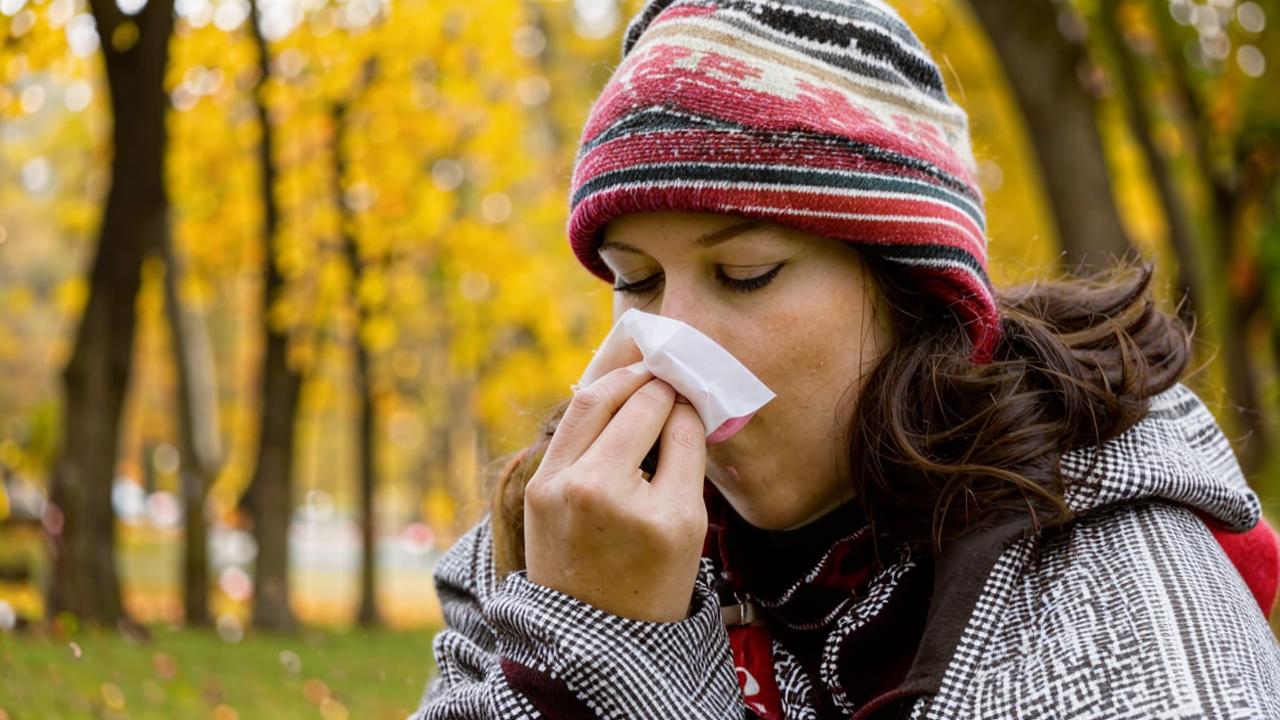In the fall months, the incidence of influenza and acute respiratory viral infections rises sharply. How to prepare for the season of respiratory infections, we find out with an expert.
Why is the incidence of acute respiratory infections increases with the arrival of cold weather?

therapist, nutriciologist
“The increase in the incidence of acute respiratory infections with the onset of the cold season is associated with two groups of factors: external and internal”.
To external factors can be attributed the change in temperature, leading to the activation of viruses in the external environment. In summer, only a small number of viruses can survive in direct sunlight and hot conditions. With the fall cooling, their number increases: they persist in the external environment, increasing the likelihood of infection.
Also in the cold season we spend more time in closed, unventilated rooms. This is an ideal incubator for viruses and bacteria, resulting in acute respiratory diseases (ARI).

As for internal factors, the state of the immune system is key.
During the period of climatic changes, immune function is somewhat reduced, and a person becomes more susceptible to acute respiratory infections. Also in the fall and winter period, we often make mistakes with the choice of clothing for the weather, overcool, get caught in the rain, wind, and this is a test for the immune system.
How to prepare for the season of ARVI?
If you have no chronic diseases, you are healthy and do not often get sick, then no specific preparation for the season of ARVI is not required.
If you have low immunity and you get sick more than three times a year, often resorting to antibiotics, it is advisable to consult a therapist and choose vitamins for immunity.

You can choose complex supplements or individual vitamins and trace elements in the most bioavailable forms that support the immune system. Vitamin D, vitamin C, zinc, and selenium are the main helpers during the acute respiratory illness season.
Any medications and nutritional supplements should be taken only after consultation with a doctor. Even seemingly harmless vitamins have their side effects and contraindications.
Many immune-supporting nutrients can be found in foods. Thus, vitamin C is found in sweet peppers, rose hips, broccoli, spinach, many fruits and berries, vitamin D – in fatty fish, fish roe, egg yolk, dairy products, zinc – in beef, liver, marine products, selenium – in garlic, pork fat, wheat bran, fish, seeds and cereals.
Patients with chronic diseases such as diabetes, asthma, chronic bronchitis, hypertension, heart failure are recommended to prepare for the cold season with the utmost care. They are at risk not just for morbidity, but also for a severe course of the disease.
To prepare it is worth consulting with a therapist, individually select vitamins, introduce physical exercise and hardening – they favorably affect the immune system. Also do not neglect vaccination against influenza, COVID-19 and pneumococcus.
Prevention of influenza and ARVI
To minimize the risk of contracting respiratory infections, you need to follow a number of rules.

- Vaccination. This is one of the most effective measures to prevent influenza and COVID-19. Vaccinations are recommended for everyone, but especially vulnerable segments of the population: the elderly and people with chronic diseases.
- Observance of personal hygiene. Influenza and acute respiratory viruses are easily transmitted through contact with contaminated surfaces. Regular hand washing with soap and water, using antiseptics containing alcohol if it is not possible to wash your hands will help to reduce the risk of disease. Also do not touch the face, especially the eyes, nose and mouth, with dirty hands, as viruses can enter the body through the mucous membranes.
- Refuse from mass events. During the epidemic season, it is desirable to avoid places with large crowds of people. If this is not possible, try to keep your distance and use medical masks.
- Properly organize your workspace. If you work in an office, it is important to keep clean and regularly ventilate the premises. Using disinfectants to treat surfaces will help reduce the risk of spreading viruses.
At the first sign of a cold – fever, cough, runny nose, sore throat – stay home and avoid contact with other people. This will help prevent the spread of infection and give your body a chance to recover more quickly.





